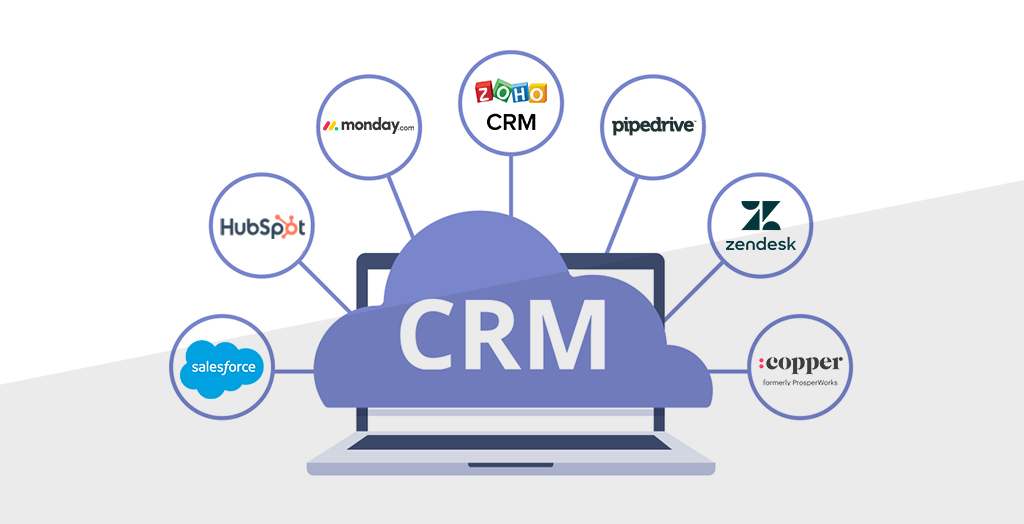In the current rapidly changing business world, in which customer needs are regularly developing, companies must prioritize efficient communication and engagement strategies. This is where customer relationship management software comes into play, offering a powerful solution that can revolutionize the way organizations connect with their clients. By harnessing the capabilities of CRM software, businesses can transform data into practical insights, giving them with a strategic edge in handling challenges and seizing opportunities.
The advantages of adopting CRM software are manifold, ranging from enhanced customer satisfaction to improved operational efficiency. By integrating customer information and streamlining workflows, organizations can build stronger relationships with their clients. This not only creates increased loyalty but also fuels sales growth and revenue generation. As organizations strive to stay ahead of the competition, utilizing CRM technology has become not just beneficial but essential for making educated decisions that align with the needs and preferences of customers.
Grasping CRM Systems
CRM software, generally termed CRM software, is a effective tool that helps companies handle their relationships with clients and potential customers and potential customers. It brings together client information and streamlines various selling and marketing tasks, allowing for businesses to forge enhanced connections and improve client contentment. By combining a spectrum of customer information and touchpoints, CRM software provides a comprehensive view of customer interactions, making it simpler for staff to comprehend and meet their demands.
One of the key features of CRM software is its functionality to streamline communication among different departments inside an enterprise. Sales, marketing, and customer service teams can together access the identical repository, which ensures all members is aligned regarding customer background, choices, and ongoing interactions. This collaboration diminishes silos and improves general efficiency, permitting teams to collaborate seamlessly to boost revenue and cultivate loyalty.
Additionally, these tools gives sophisticated analytics tools that assist businesses to make data-driven decisions. By analyzing customer behavior and interaction metrics, businesses can pinpoint trends, predict future requirements, and customize their strategies in response. This proactive approach not just enhances the decision-making process but also enables companies to provide a better tailored service, eventually causing greater client retention and higher sales conversions.
Benefits of Using CRM
One of the main advantages of CRM software is its capability to improve customer relationships through improved communication. By consolidating customer data, organizations can monitor contact, choices, and feedback in real time. This availability to data allows companies to adapt their communication and offers, ensuring that customers feel valued and understood. As a result, more robust relationships can be cultivated, leading to increased customer loyalty and retention.

Another important benefit of CRM software is the automation of mundane tasks, which enhances operational efficiency. By automating tasks such as data entry, lead generation, and follow-up communications, staff can concentrate on more valuable activities rather than simple administrative duties. This not only boosts productivity but also guarantees that no critical customer interaction is overlooked, resulting in a more smooth workflow and better service delivery.
Finally, CRM software allows businesses to gain valuable knowledge through analytics and reporting. By harnessing the power of data analysis, companies can detect trends in customer behavior, measure the effectiveness of initiatives, and predict sales channels. This intelligence aids in strategic decision-making, allowing organizations to adjust their plans based on real-time data. Ultimately, this competitive edge can propel growth and enhance edge in the industry.
Improving Decision-Making with Data
CRM software delivers businesses with a abundance of data that can greatly improve decision processes methods. By bringing together customer contacts and data points into a centralized platform, organizations can analyze trends and behaviors with greater accuracy. This centralized information allows businesses to identify opportunities for upselling and cross-selling, enabling them to tailor their marketing strategies to meet customer needs more directly.
When equipped with advanced analytics features, CRM software enables teams to understand complex data sets effectively. Businesses can derive insights from customer feedback, purchasing patterns, and engagement metrics. This insight results in better-informed strategic options, helping companies adjust to changing market dynamics and customer expectations quickly. Moreover, the ability to generate reports and dashboards supports real-time assessments of performance across different departments.
The team-based nature of CRM software further enhances decision processes by allowing teams to distribute insights and align efforts more efficiently. With a comprehensive view of customer relationships, sales teams can align their strategies with marketing initiatives, ensuring a consistent approach to client engagement. This collaboration not only boosts operational efficiency but also cultivates a customer-centric culture, driving better outcomes for both the business and its clients.
